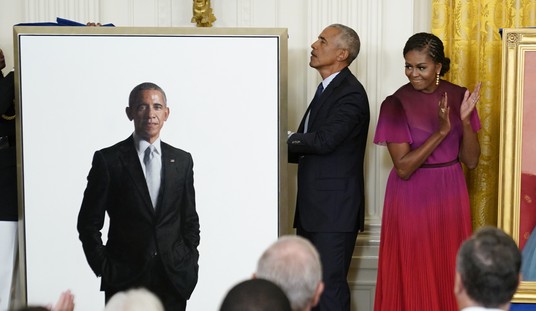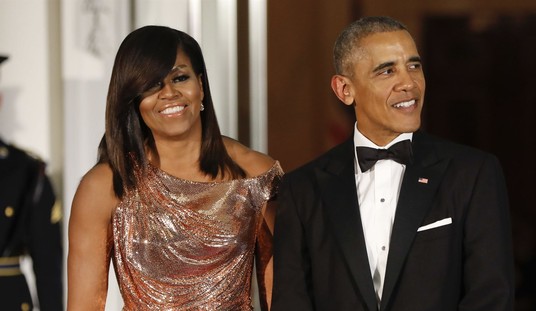Both Washington and Jerusalem are buzzing about two top officials who have decided to publicly criticize the government in which they served. One worked in the Obama administration and the other in Benjamin Netanyahu’s government.
In the U.S., the person in question is Dennis Ross, who was the chief negotiator for the Arab-Israeli conflict from 1993 to 2001, and a special assistant to the president for the Middle East and South Asia from 2009 to 2011. Considered to be a skilled and knowledgeable diplomat by the Clinton, Bush and Obama administrations, Ross resigned from his post in 2011 without making any public statement.
Now he has decided to come forth, by penning two op-eds in the New York Times, the first appearing last September, and the second a few days ago. In September, Ross stated, as the title stressed, that “Islamists Are Not Our Friends.” Among the Sunnis, Ross singled out ISIS and the Muslim Brotherhood, the latter of which the Obama administration was backing in Egypt at the time of the Arab Spring and thereafter. The Brotherhood, Ross wrote, “was Islamist before it was Egyptian.” Ross, unlike the Obama team, favored making a clear break with the Assad regime in Syria, which would have ensured that the U.S. did not end up “partnering with Iran against ISIS,” which is now what the administration seems to be doing.
In his second op-ed, Ross turned to the Israeli-Palestinian dispute. Referring to Mahmoud Abbas’ attempt to bring Israel before the International Criminal Court for violations of human rights, Ross told a European official that “it’s time to stop giving the Palestinians a pass.” He then proceeded to recount the three major negotiations between the Palestinians and Israelis that attempted to resolve the conflict: Clinton’s in 2000, Olmert’s in 2008, and Kerry’s last year. To each set of proposals, the answer of the Palestinians was “either ‘no’ or no response.” That is because, as he put it, “Palestinian political culture is rooted in a narrative of injustice.”
[Its sense of grievance] treats concessions to Israel as illegitimate. Compromise is portrayed as betrayal, and negotiations- which are by definition about mutual concessions- will inevitably force any Palestinian leader to challenge his people by making a politically costly decision.
Today, Ross realizes that all the pressure now is on Israel and virtually none on the Palestinians, emphasizing what “Israel must do and what Palestinians should get.” He thinks it is the Palestinians, not Israel, who should be held accountable and who should have their international support by Europe weakened, and that such support should come to an end. Only such action “could well change their calculus.” Nothing will be accomplished unless Palestinians show they are willing to compromise. They also have to be able to deal realistically with the settlement of the refugee issue “that allows Israel to retain its Jewish character.” In other words, the Palestinians have to give up the “right of return.”
In Israel, it is former Israeli Ambassador to the United States Michael Oren, picked personally in 2009 by Netanyahu to represent Israel in the U.S., who is now challenging the direction of the government and leader he once served. The issue is Benjamin Netanyahu’s acceptance of Speaker John Boehner’s invitation to address Congress. The purpose of the prime minister’s talk will be to argue on behalf of tough sanctions on Iran if it continues to prepare its infrastructure to quickly build a nuclear weapon, and to urge Congress to pass a resolution in favor of sanctions if Iran doesn’t come to an agreement by the next deadline. The president is not happy, refusing to meet with Netanyahu when he’s in the country and promising to veto the sanctions bill should it arrive on his desk.
Speaking during a television interview yesterday in Israel, Oren stated that Netanyahu should cancel his upcoming speech set for March 3, which will take place two weeks before Israel’s elections. The reason, Oren told Israel’s Channel 2, was to avoid a rift with the American government. “Much responsibility and reasoned political behavior,” he argued, “are needed to guard [Israel’s] interests in the White House.” Netanyahu’s behavior has “created the impression of a cynical political move” which Oren believes “could hurt our attempts to act against Iran.” Israel, he wrote on Twitter, must not sacrifice one of its two most important needs — “preventing Iran from acquiring nuclear weapons and strengthening our relationship with the US.”
In making this argument, Oren — now a leader of the new Kulanu party who is on its election list of those running for the Knesset in the March elections — is clearly being political himself, by staking out a new stance distancing himself from his former boss. His position also puts him in line with other opponents of the prime minister, including Hatnua party leader Tzipi Livni and Yesh Atid party head Yair Lapid. Lapid argued that Bibi was ruining Israel’s relationship with the U.S. purely for political gain. As one unnamed U.S. official told Israel’s Channel 2, close cooperation between Israel and the U.S. on “strategic matters” was being jeopardized for Bibi’s “political interests while disrupting the correct working relationship” between the two nations. The term “strategic matters” was a euphemism for the effort to stop Iran’s nuclear weapons program.
So who is correct, Bibi or Oren, Livni and Lapid? Those who make the case for Bibi include Rabbi Shmuley Boteach, who writes that “there is nothing wrong with an Israeli Prime Minister doing his utmost to prevent Iran from obtaining a nuclear weapon, even if it offends the sensibilities of the American president,” and Caroline Glick, who is now being considered by Netanyahu to be on Likud’s list for the Knesset from a safe Likud district. At Frontpagemag.com and the Jerusalem Post, Glick writes that Speaker Boehner was correct to invite Netanyahu, because “Boehner didn’t invite Netanyahu because he cares about Israel’s election. He invited Netanyahu because he cares about US national security. He believes that by having Netanyahu speak on the issues of Iran’s nuclear program and radical Islam, he will advance America’s national security.”
I think that both Boteach and Glick are wrong in stating their case. Of course, Boehner was within his rights to offer Bibi a platform, and Netanyahu within his to accept the offer. The question is whether or not his acceptance of the offer will help or harm the effort to rein in Iran. Congress will most likely pass resolutions for sanctions against Iran if necessary without Netanyahu’s speech, and the conflict over his acceptance gives ammunition to those against sanctions, such as the editors of the New York Times, who argue that the invitation is a “hostile attempt to lobby Congress to enact more sanctions against Iran, a measure that Mr. Obama has rightly threatened to veto.”
Glick is undoubtedly correct when she argues that Obama has such a radical position that even Democratic Sen. Robert Menendez of New Jersey stated publicly that he never expected the administration to present a position that “sounds like talking points that come straight out of Tehran.” And last week, Obama verged on overt anti-Semitism when he told the press that the senators opposing his agenda were doing so because of pressure on them from donors. Everyone knows that he was referring obliquely to Jewish donors, and to lobbies like AIPAC.
This truth does not mitigate the dangers to our common goal of stopping Iran. Jonathan S. Tobin spells out the main reason why Netanyahu’s speech could serve the interests of those who favor appeasement of the mullahs:
Though his American fans are thrilled with the idea of Netanyahu addressing Congress and rallying it to the cause of stopping Iran, the prime minister did the White House a favor by accepting Boehner’s invitation without going through the normal protocol of consulting with the State Department and/or the White House. Instead of the focus being on Obama’s illogical opposition to any pressure on an Iranian regime that has been stonewalling him and running out the clock in nuclear negotiations, attention has been focused on the prime minister’s chutzpah. There is already a strong majority in both Houses of Congress for more sanctions on Iran, a step that would strengthen Obama’s hand in negotiations, and the controversy over Netanyahu’s appearance gives some weak-willed Democrats an excuse to do the president’s bidding and sink the proposed legislation.
We all understand that Obama wants détente with Iran, and is willing to give them the bomb and even forge an alliance with this state that is responsible for terrorism throughout the world, because he sees them as part of a new alliance against ISIS. Why, then, give his supporters an issue to turn the public’s attention from a failed foreign policy, and to allow them to portray Netanyahu as the opponent of peace and a firm American-Israeli alliance? Therefore, I agree fully with Tobin’s conclusion:
The prime minister would do well to stay home and to lobby quietly and effectively for Congress to raise the pressure on Iran. But even if he does give the speech, the U.S.-Israel alliance is sufficiently strong to withstand Obama’s assault on it. Blowing smoke about revenge is as close to a real rupture in relations with Israel as Obama and his staff will get.
More:









Join the conversation as a VIP Member